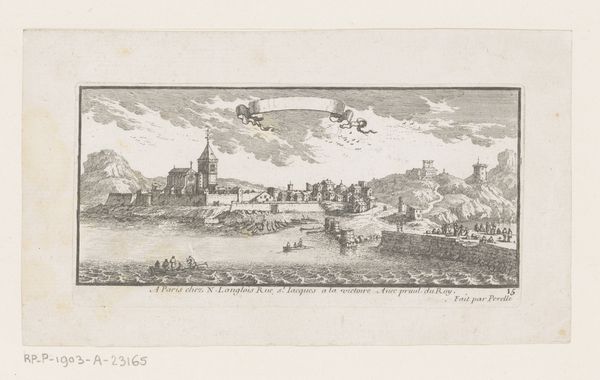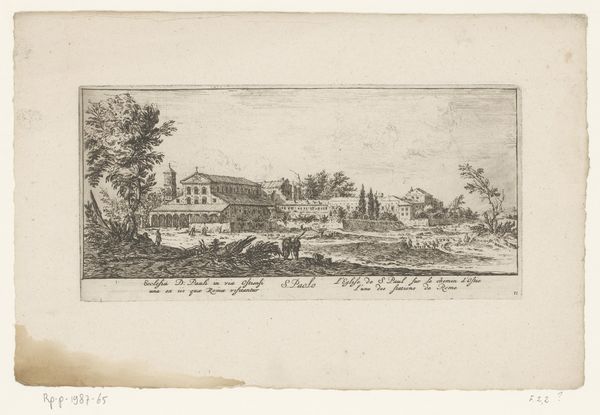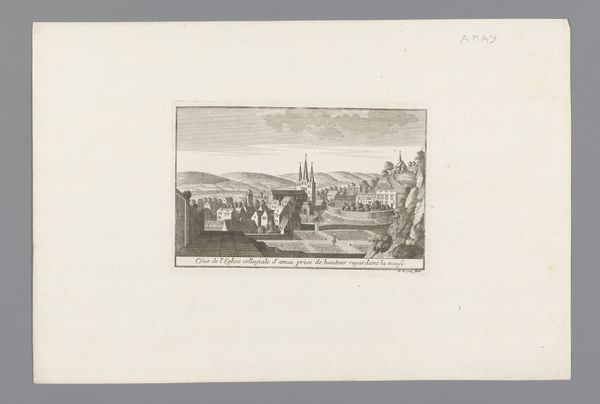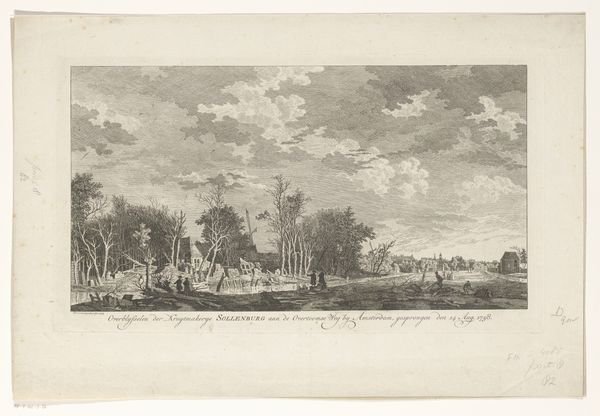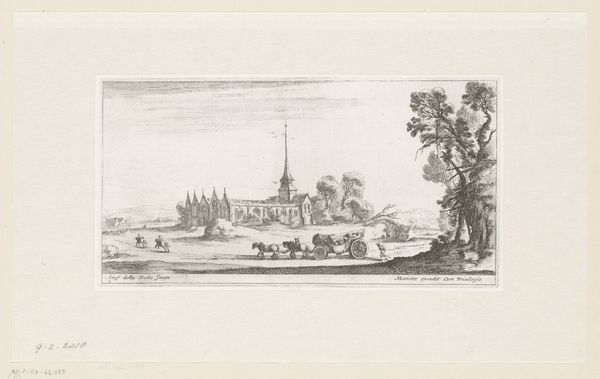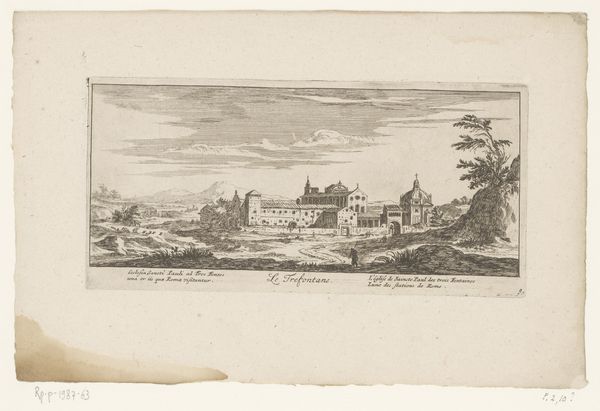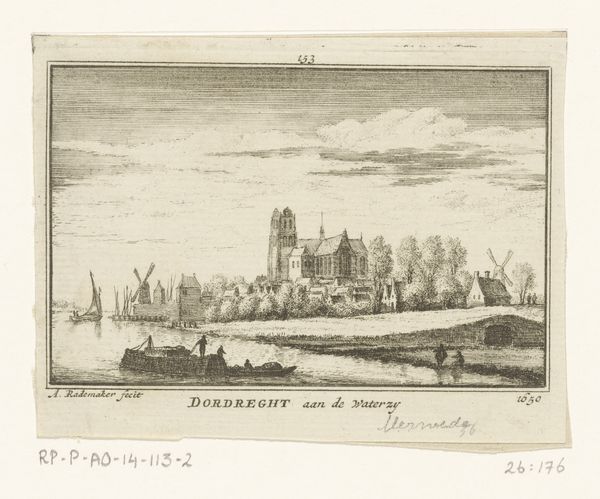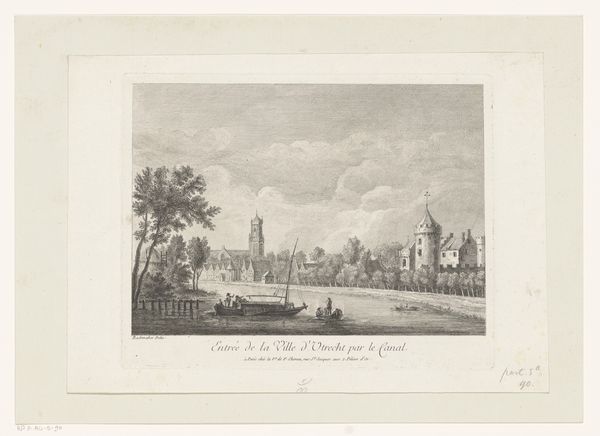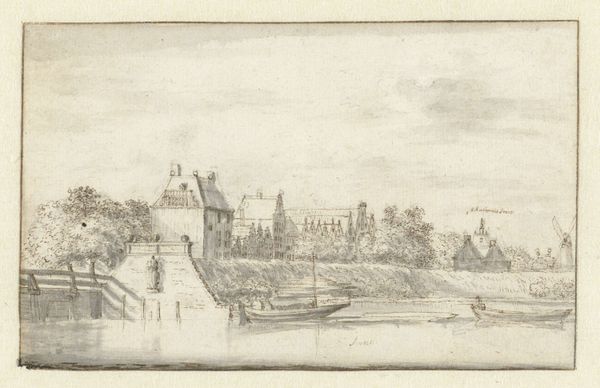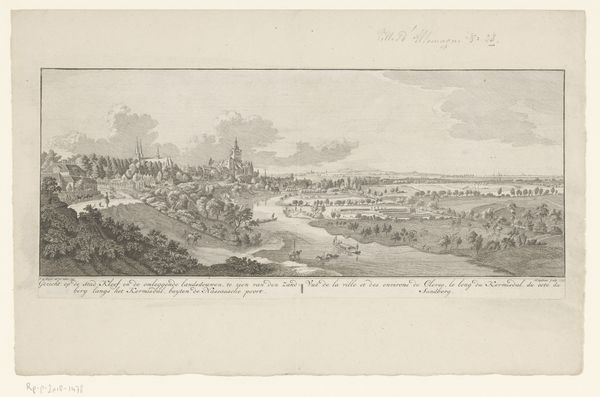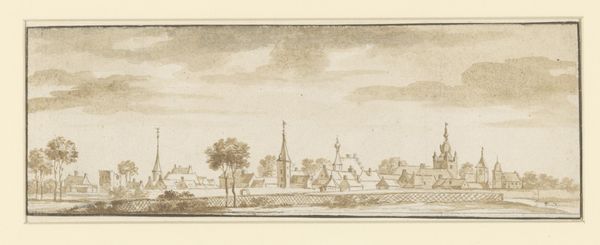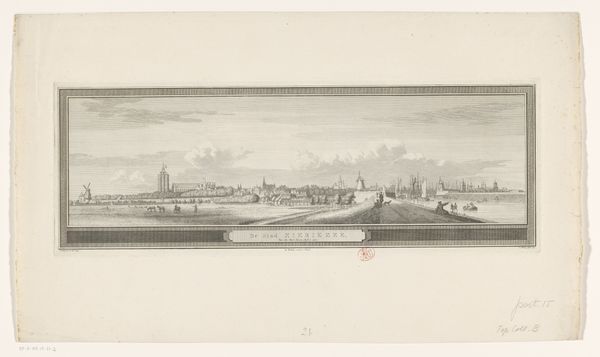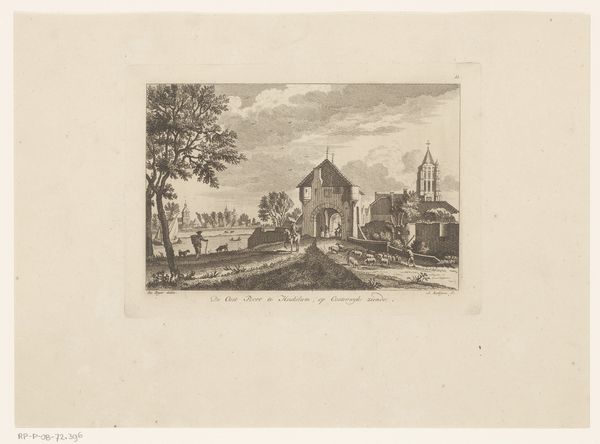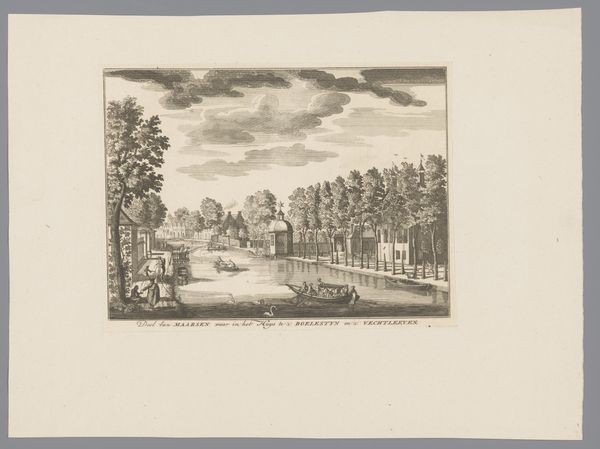
Dimensions: height 75 mm, width 200 mm
Copyright: Rijks Museum: Open Domain
Hendrik Spilman created this print of Jaarsveld in 1750. The tranquil scene invites us to consider the values and priorities of the Dutch Republic in the mid-18th century. The Dutch Golden Age had passed, and while the Republic remained a significant economic power, its cultural output shifted. Prints like these gained popularity, reflecting a growing interest in topographical accuracy and the documentation of local scenes. Jaarsveld, a small, rural town, represents a departure from the grand cityscapes that dominated earlier Dutch art. This shift suggests a growing appreciation for the countryside, perhaps as a retreat from the complexities of urban life. Spilman’s print speaks to a self-conscious desire to map and preserve the Dutch landscape. It highlights the role of art in shaping national identity and reflects on the relationship between urban and rural, and the changing social and economic realities of the time. To understand this print further, research into the economic conditions of Jaarsveld, as well as the printmaking industry in the Netherlands, would be invaluable.
Comments
No comments
Be the first to comment and join the conversation on the ultimate creative platform.
